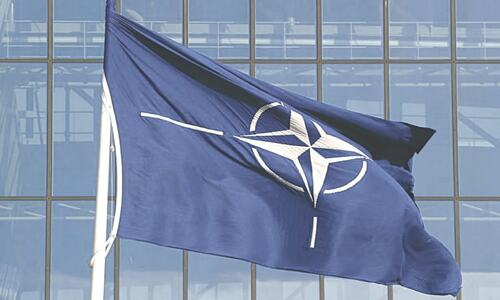LOBITO: On a recent Friday night, men in SUVs and others on mopeds line up outside one of the few gas stations in Angola’s port city of Lobito to fill up for the weekend.
As car horns begin to sound, it becomes clear that the gas pumps have once again run dry.
“We provide millions of barrels of oil each month to China and the United States but don’t have enough to fill up our own tanks,” said David Boio, a local businessman, as he stepped down from his truck.
Since Angola’s 27-year civil war ended in 2002, foreign companies have rushed in to tap its oil reserves, making it one of the world’s big suppliers. But Angola has failed to provide fuel for its own drivers, one of many paradoxes that overshadow elections set for Sept 5.
Another is that the country earned an estimated record $41 billion in oil exports last year, up from $30 billion in 2006, according to estimates by JP Morgan, but almost 70 per cent of its population still lives on less than $2 a day.
Analysts blame corruption for the government’s inability to improve the lives of its people. Billions of dollars in oil revenue have disappeared from state coffers, according to human rights groups, although a World Bank official said in July that transparency has improved.
The ruling MPLA party, a mix of former Marxists and Western-leaning technocrats, has been in power since it declared independence from Portugal in 1975. It is widely expected to win the election.
The main opposition party, UNITA, which lost the civil war against the government, has promised to end poverty by using oil revenues to invest in the country’s once-prosperous farm sector. The other 12 parties in the race are small and have barely enough funds to be heard.
While Angolans may wonder whether the elections – the first national vote since the end of the civil war – will bring more accountability in government, oil companies are widely seen as having little interest in a change of government.
“The oil industry wants stability and access to oil reserves and therefore an expected victory from the MPLA party will be good news for them,” said Alex Vines, the head of the Africa programme at London-based think-tank Chatham House.
Local analysts agree.
“The oil industry is not bound by ethical or moral constraints but by principles of profitability,” said Justino Pinto de Andrade, the head of the economics department at the Catholic University of Luanda. “All they want is for things to remain as they are.”
Vikea Cambulo, a professor of sociology at the Agostinho Neto University, noted that the oil companies are finally reaping the rewards of billions of dollars of investment in Angola’s deepwater resources.
“Why should these oil companies want a change in government?” Cambulo asked.
Producing almost two million barrels of oil per day, Angola now rivals Nigeria as Africa’s biggest oil producer. It is the biggest supplier of oil to China and the sixth biggest to the United States. Oil accounts for about 90 per cent of Angola’s exports.
Angola’s status as a rising star in the oil world allowed it to join the Organization of Petroleum Exporting Countries, raising its profile on the international stage.
Its mostly off-shore reserves stand at about 11.4 billion proven barrels of oil, about the same reserves as Algeria, according to estimates by Edinburgh-based energy consulting firm Wood Mackenzie.
Despite such wealth, about five million people live in shanty towns around Luanda, the capital city, without clean water or electricity.
The government says it is working on a 200,000 bpd refinery in Lobito to replace the country’s struggling 39,000 bpd refinery and provide gasoline for the local market. But the $3.5 billion project has been stalled for years as state-owned oil firm Sonangol struggles to find foreign investors.
Analysts say such concerns do not matter much for investors, who are happy to continue to deal with a business-friendly government keen to grant access to one of the world’s biggest untapped oil reserves.—Reuters















































